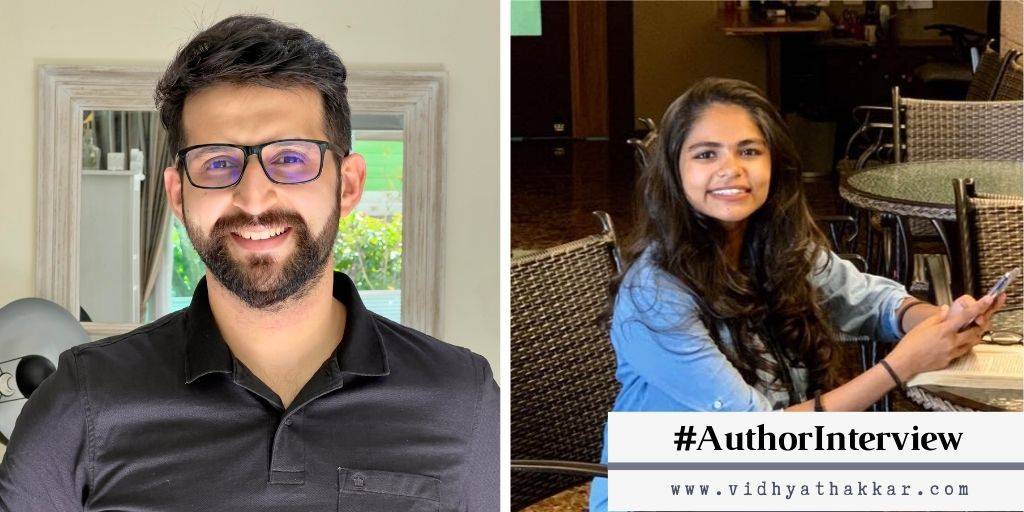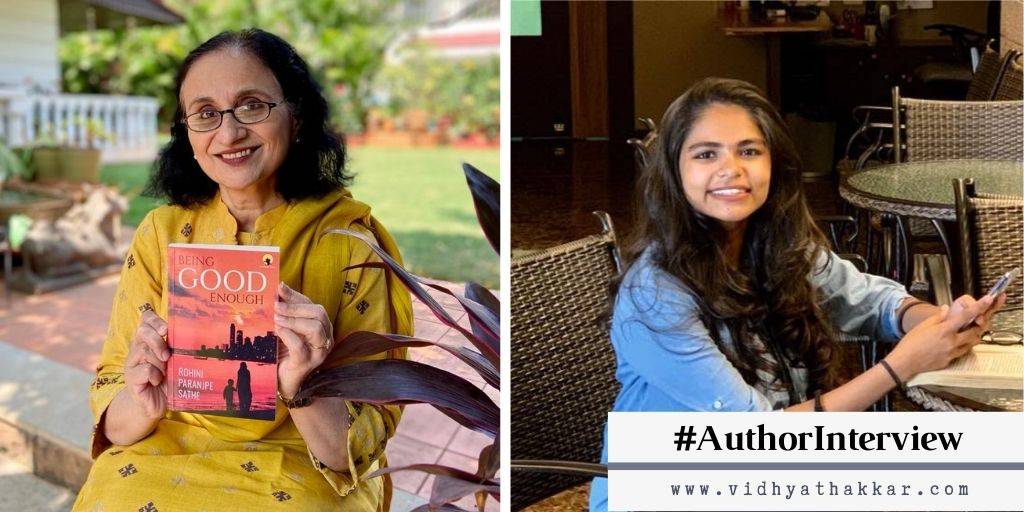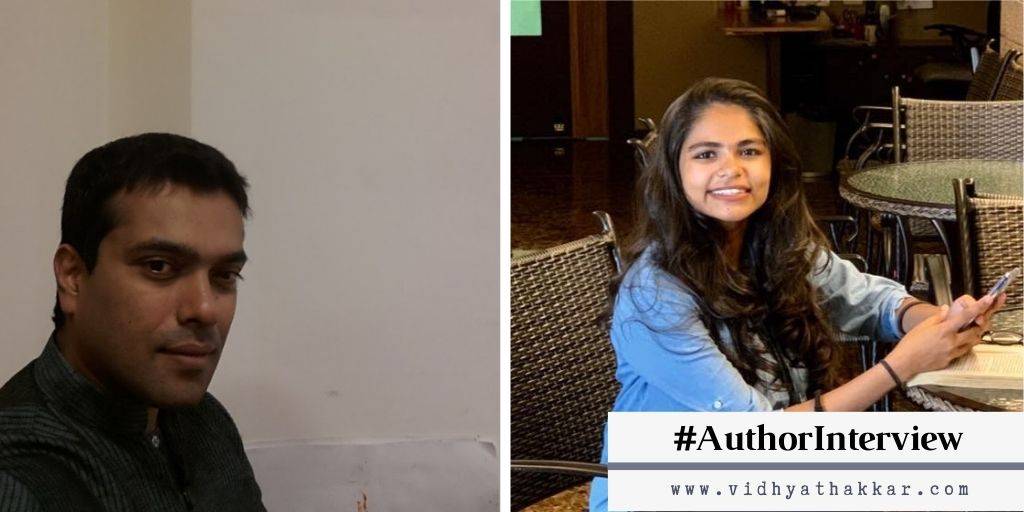About the Author
Raghav Khanna comes from the world of films and television and is best known as the creative director and writer of the acclaimed food history series Raja Rasoi aur Anya Kahaniyaan. His other works include Masters of Taste with Gary Mehigan, The Family Affair, Mega Icons, The Royal Enfield Story and Janani: The Story of Yamuna.
Hailing from Old Delhi, Raghav studied English literature at University of Delhi. His writings explore themes of loss of cultural identity, internal conflicts, post-colonial heritage in the twenty-first century, brown voices in a global community and man’s reckless abuse of nature.
Interview
Q) Tell us about the idea behind the book?
At its heart – Sita’s Kitchen is about a girl who dares to dream big. It is her coming of age story as she embraces her aspirations, which at the onset seem audacious. Her journey is to overcome her flaws and her internal conflicts while managing everything which happens in the world outside. And through all this – eventually draw strength from her passion.
Sita’s Kitchen was originally conceived as a screenplay. I was inspired to write the story after a trip to the Himalayas in 2017. Over the next year, the story and the characters started taking form in my mind and grew on me. While writing it, I felt compelled to write it in the traditional prose form as a novel.
Q) How much time did it take in the process of writing?
I had conceived this book in 2017 while I was travelling through Himachal Pradesh for a shoot. I had finished it in 2019 and later added some contemporary relevance related to the pandemic while editing it with the publisher.
Q) What did the process of writing this book teach you?
This is my debut novel, previously I have written for television, primarily in the narrative non-fiction genre. But writing in prose, writing fiction, in a more traditional way, allowed me to detail out a life-like version of the world and the characters I was writing about. The story is set in the culinary world and I borrowed heavily from my time as a director and writer when I made numerous food and travel series. I’ve tried to be meticulous and bring authenticity to the description of food and the hospitality industry – where the story is set. The novel also explores the themes of gender dynamics in rural India, immigration, internal conflicts and post-colonial heritage.
Also Read: Interview with Meera J Pillai – Author of Maya And The Sword Of Gringak
Q) What inspired you to write this book?
While in Himachal, one day we had missed our breakfast and the crew stopped for brunch at a roadside dhaba offering omelette, maggie, pasta and cold coffee. When my production assistant brought the bill- my eyes popped out – it was not an amount I was expecting in rural India. But the small café like dhaba did serve great food and we were quite hungry as well. After the meal we were on the road for another 4 hours and that seeded this idea to create a fictional story of a chef who hails from rural Himalayas and has an unparalleled gift for the culinary arts – which is fueled by her curiosity.
Q) Which is your favourite part from the book?
It is a coming of age story, I personally like the part where Sita is thrown into the deep end of the pool with two options – sink or swim. It is a relatable situation many of us have been in before. I hope it can inspire people to overcome their doubts and not worry about what others think when they decide to follow their dreams. I also like the ending, it denounces the notion of how many define success.
Also Read: Sita’s Kitchen by Raghav Khanna – Book Review
Q) A book that had an impact on you, which helped you in writing this one?
A lot of books have had a profound impact on me, I studied literature during my graduation and reading at large has been a comforting refuge. There may not be a particular writer or book to have influenced Sita’s Kitchen but overall – the works of Dostoevsky, Chinua Achebe, Ghalib, William Blake, Tolkien, Premchand, Murakami, Coelho and Amitav Ghosh were what I read during my formative years. Currently – I am reading Normal People by Sally Rooney and Anxious People by Fredrik Backman.
Q) Tell us about your plans? Planning a new book?
I am a filmmaker and I am currently working with a streaming company, I don’t intend to write something soon. But there is an idea which I sleep and wake up with; those characters, the situations and the world in which they are set – will slowly creep on me like a bougainvillea along trellis. Once that happens – I will get down to writing it. For me, this gestation period before writing or making anything is really important. It is the point where you, as an artist, are at your most vulnerable. You have doubts about what you are doing – whether you can do justice to your subject, if you have an authentic perspective on the times and the lives you intend to depict. You are in a self-critical mode where you question each plot point, each character’s actions and even the entire premise. While you are doing this – you are also able to distill the story for narrative clarity and you find the lens with which you want to tell it. And once you are out of this phase – you are armed with conviction and discipline – which I think is really important in writing anything in the long form – be it a novel, a screenplay or a series. Even during my projects where I am a producer or a director – this is one exercise I follow for all my work.
Q) How your life changed after the book was published?
It hasn’t. There is a sense of relief though. As a writer and a filmmaker, whenever I’ve been immersed in making or writing something – once it releases – once it’s out with the readers or the audience, irrespective of it’s scale or fate, I am in a phase which I can only describe as white noise and relief. You gather yourself for your next storytelling adventure.
Q) What is a literary success for you?
Success is a word which comes with strong connotations. For me – I would not lie – there is that innate desire for your work to reach as many people as possible and gain recognition. But what is of utmost importance is that you can continue to make what you love and can find an outlet to share it with people.
Q) A message for all the readers
Over the years, many of you have reached out to me – expressing the joy and comfort Raja, Rasoi aur Anya Kahniyaan has brought to you. And some of you have asked what I am writing next. So here it is – Sita’s Kitchen, a novel, my first. And I do hope it brings you the same joy and nostalgia with which I have woven it.



